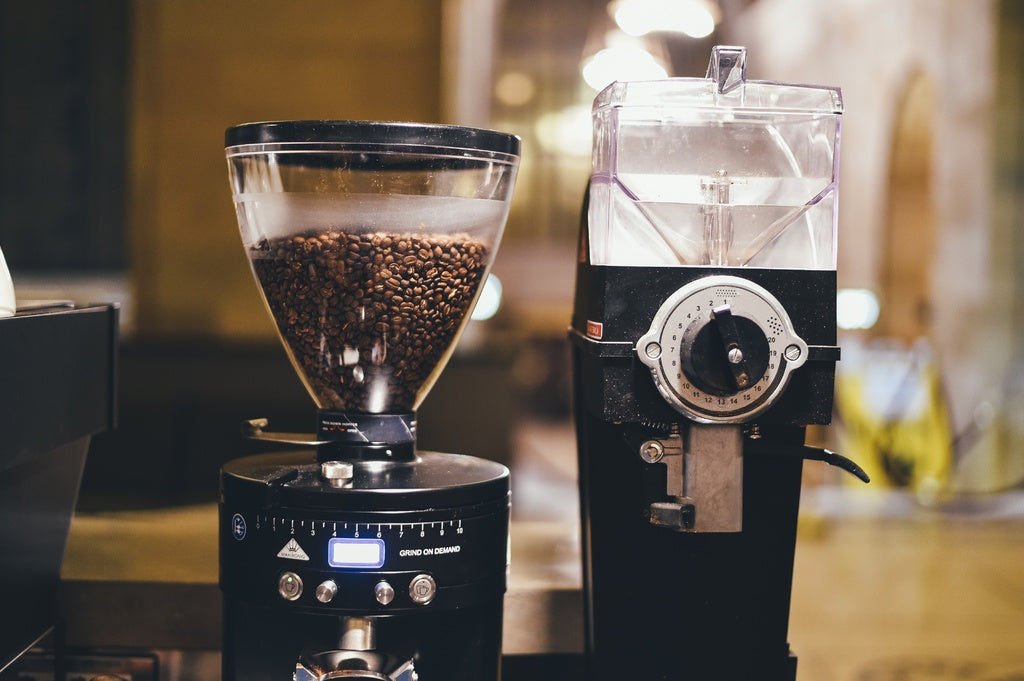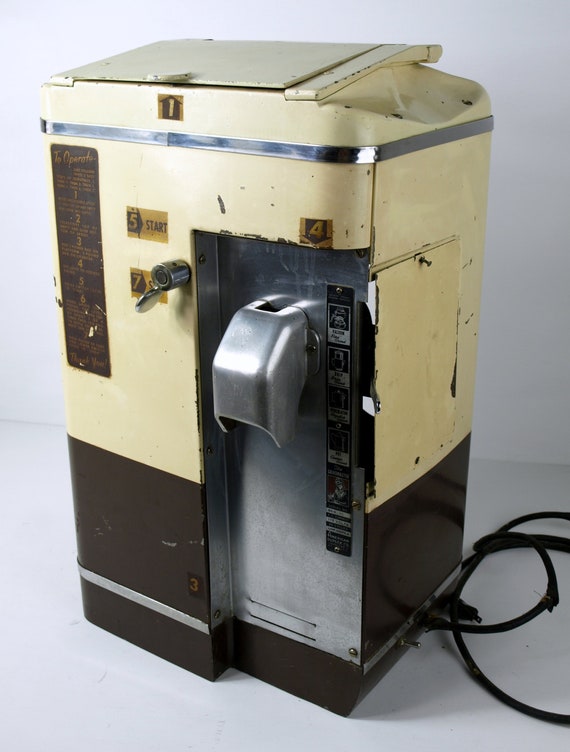Industrial Coffee Grinder Selection Guide for Professional Baristas
Wiki Article
Just How to Pick the Perfect Industrial Coffee Grinder for Your Business
Picking the ideal industrial coffee grinder for your company is a diverse decision that needs careful consideration of numerous critical elements. In addition, comprehending the various types of grinders offered can dramatically influence your functional efficiency.Assess Your Grinding Needs
When choosing an industrial coffee grinder, one need to first examine their grinding demands to make certain optimal performance and consistency. This initial analysis involves understanding the volume of coffee to be processed daily, as well as the desired grind size for different developing techniques. A high-capacity mill may be essential for companies serving big quantities of coffee, while smaller operations might locate a more compact model sufficient.Furthermore, it is vital to think about the kinds of coffee beans being made use of, as various beans may require details grinding techniques to achieve the most effective taste account. Oily beans might necessitate a mill created to deal with such characteristics without overheating or clumping.
An additional essential variable is the needed grind uniformity. Specialty coffee businesses usually require precise grind sizes to boost removal and taste, making it important to pick a mill that can provide uniform outcomes. Examining the available area and electrical demands will certainly assist in selecting a mill that fits seamlessly right into your functional workflow. By extensively evaluating these factors, services can make informed decisions that straighten with their coffee grinding needs, ultimately resulting in a superior item and satisfied clients.
Understand Mill Kind
Comprehending the different kinds of commercial coffee mills is crucial for making an informed choice that satisfies certain functional needs. There are largely two groups of mills: blade grinders and burr grinders.Blade grinders use spinning blades to slice the coffee beans, causing an inconsistent grind dimension - Industrial Coffee Grinder. While they might be much more budget-friendly, they are usually not suitable for business applications where accuracy is necessary
On the various other hand, burr mills give an extra consistent work by crushing the beans between two surface areas. They can be more classified right into flat burr and conelike burr mills. Apartment burr grinders provide a consistent grind dimension and are usually preferred for espresso preparation, while conelike burr mills are flexible and can deal with a series of mixture techniques, from espresso to French press.
When selecting a mill, think about the certain demands of your service, including desired work consistency, manufacturing quantity, and the kinds of coffee drinks you plan to offer - Industrial Coffee Grinder. Each mill type has its benefits and restrictions, so comprehending these nuances makes it possible for notified decision-making that straightens with functional goals
Evaluate Work Size Uniformity
Accomplishing grind dimension consistency is necessary for creating top quality coffee, as variants in particle size can substantially affect removal and flavor. When picking a commercial coffee mill, it is vital to assess just how well the device keeps uniformity in grind dimension across different sets. Inconsistent work sizes can bring about irregular removal, resulting in a cup that might taste weak or extremely bitter.To evaluate work size consistency, take into consideration grinders with functions such as adjustable work setups and top quality burrs. Burr mills, in particular, stand out in generating uniform fragment dimensions compared to blade grinders. The product and form of the burrs play a vital function, with stainless-steel and ceramic options offering toughness and accuracy.

Take Into Consideration Production Capacity
In the fast-paced world of coffee production, thinking about production capability is extremely important for businesses aiming to meet need without giving up quality. The manufacturing ability of an industrial coffee mill straight influences a business's ability to meet orders successfully, handle inventory, and reply to rising and fall market patterns.When analyzing production ability, it is crucial to examine the grinder's result rate, normally determined in extra pounds per hour. This dimension must align with your company's predicted sales quantity and development targets. A café with a high turn over may call for a mill that can process several hundred extra pounds daily, while a smaller procedure might be sufficient with a reduced capacity design.
In addition, think about the kind of coffee being refined. Different beans and blends might impact grinding rate and effectiveness, requiring a mill with the ability of managing diverse production requirements. It's also worth considering the mill's capability to keep consistent high quality under high outcome problems, as any kind of fluctuations can influence the end product.
Ultimately, selecting a you can find out more mill that matches your service's production ability will ensure you continue to be responsive and competitive to client expectations.

Budget and Maintenance Factors
When assessing the ideal industrial coffee maintenance, grinder and budget plan factors play a substantial role in the general decision-making process. A first investment in a high-quality grinder can yield long-lasting advantages, however it's important to establish a clear budget that aligns with your company's functional requirements. Take into consideration both the purchase cost and prospective functional expenses, such as energy consumption and replacement components.
Maintenance is another important element that can influence your budget. Industrial coffee grinders need regular maintenance to make certain optimal performance and durability. Examine the producer's suggestions for maintenance, consisting of cleansing routines and components substitute, as these will certainly influence lasting functional costs. Additionally, take into consideration the schedule of solution and assistance, as dependable support can reduce downtime and repair costs.

Buying a mill that is durable yet very easy to keep can conserve money gradually. While lower-priced alternatives may be appealing, they might sustain greater upkeep expenses and decreased effectiveness. Inevitably, balancing first prices with long-lasting upkeep and functional effectiveness will certainly assist you to the very best option for your business's coffee grinding demands.
Final Thought
Selecting the ideal commercial coffee visit the website mill necessitates a complete examination of grinding demands, grinder types, grind size uniformity, manufacturing ability, and budgetary factors to consider. A well-chosen mill not only boosts the high quality of the coffee created however also contributes to the overall success and profitability of the venture.Specialty click over here now coffee organizations often require precise work dimensions to enhance removal and taste, making it important to pick a grinder that can provide uniform results. Flat burr grinders offer a regular grind size and are usually preferred for espresso preparation, while conelike burr mills are functional and can deal with an array of mixture techniques, from coffee to French press.
When selecting a commercial coffee mill, it is important to assess how well the device keeps harmony in work dimension throughout various batches. Burr grinders, in particular, excel in producing uniform particle sizes contrasted to blade mills.Selecting the perfect industrial coffee grinder requires a thorough assessment of grinding demands, grinder types, grind dimension uniformity, production ability, and monetary factors to consider.
Report this wiki page